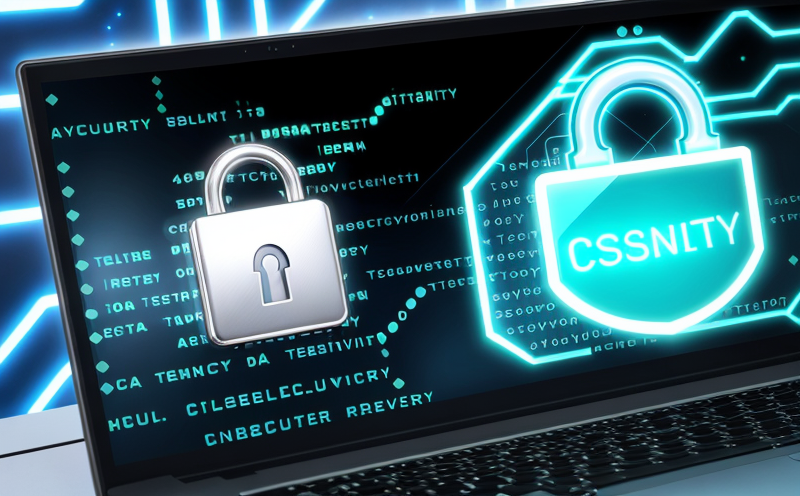NIST AI RMF AI Security Testing in IoT Devices
The National Institute of Standards and Technology’s Risk Management Framework (NIST RMF) is a comprehensive approach to managing the security risks associated with information systems. When applied to Artificial Intelligence (AI) within Internet of Things (IoT) devices, this framework ensures that AI algorithms are secure, reliable, and compliant with industry standards. Eurolab specializes in NIST AI RMF testing for IoT devices, ensuring that your smart home or connected device products meet the highest security and privacy standards.
IoT devices range from simple sensors to complex systems that control everything from lighting to entire homes. The integration of AI into these devices introduces new layers of complexity and potential vulnerabilities. Eurolab’s NIST AI RMF testing addresses this by identifying risks in the design, development, and deployment phases of AI within IoT products.
The process begins with a risk assessment that identifies all potential threats to the device. This includes not only traditional cybersecurity concerns but also privacy issues related to data collection and storage. Once risks are identified, mitigation strategies are developed and implemented. These can range from enhancing encryption algorithms to improving user authentication methods or even redesigning certain aspects of the AI model.
Eurolab’s testing uses advanced tools and methodologies that comply with NIST standards such as SP 800-160 series, which provide guidelines for categorizing security controls based on risk. Our team of experts ensures that every step of the process adheres to these best practices, providing you with peace of mind regarding your product’s security posture.
Our services also extend beyond mere compliance; they offer practical solutions designed specifically for IoT devices. By leveraging our deep understanding of both AI and cybersecurity, we can help identify unique risks that may not be covered by general RMF guidelines. This includes testing against emerging threats like adversarial attacks on neural networks or vulnerabilities in machine learning frameworks.
In addition to technical assessments, Eurolab provides detailed reports outlining all findings along with recommendations for improvement. These documents serve as valuable resources both during product development cycles and post-release updates, helping maintain optimal security levels throughout the lifecycle of your IoT device.
Applied Standards
Eurolab adheres strictly to international standards when conducting NIST AI RMF testing for IoT devices. We utilize several key documents provided by organizations like NIST itself, as well as other recognized authorities in the field.
- NIST SP 800-160 series: This provides comprehensive guidelines on categorizing security controls based on risk assessments.
- ISO/IEC 27001: An internationally recognized standard for information security management systems (ISMS).
- EN ISO/IEC 38500: A framework for good practice in IT governance, which includes aspects relevant to securing AI implementations.
- ASTM E2946-17: This document offers detailed procedures for assessing cybersecurity risks associated with connected devices.
By incorporating these standards into our testing protocols, Eurolab ensures that every aspect of your IoT device’s AI component is thoroughly evaluated against established best practices. This guarantees not only compliance but also enhances overall security and resilience.
Benefits
- Enhanced Security: Identifying and mitigating risks early in the development process can significantly improve the security posture of your IoT device. This helps protect against unauthorized access, data breaches, and other cyber threats.
- Compliance Assurance: Ensuring adherence to NIST RMF guidelines demonstrates commitment to regulatory requirements, which is crucial for maintaining trust among consumers and stakeholders.
- Improved Reputation: A secure product builds brand loyalty by instilling confidence in users about the safety of their personal data. This translates into better market reception and potentially higher sales figures.
- Potential Cost Savings: Early detection of vulnerabilities through rigorous testing can prevent costly recalls or reparations later down the line.
- Innovation Support: By staying ahead of security trends, you enable continuous improvement in your product offerings. This keeps customers engaged and encourages further innovation within your organization.
Eurolab Advantages
Eurolab stands out as a leader in NIST AI RMF testing for IoT devices due to our unique combination of expertise and resources. Our team comprises some of the most experienced professionals in both AI and cybersecurity, ensuring that no detail is overlooked during the testing process.
We offer flexibility tailored specifically to your project needs, whether you require full lifecycle support or just specific assessments at certain stages. Additionally, our state-of-the-art facilities equipped with cutting-edge technologies allow us to perform thorough tests under realistic conditions, simulating real-world scenarios where possible.
Our commitment extends beyond technical proficiency; we also provide comprehensive training sessions aimed at educating your staff about the importance of AI RMF in IoT product development. This knowledge transfer ensures long-term sustainability by empowering individuals within your organization to adopt secure practices independently.





